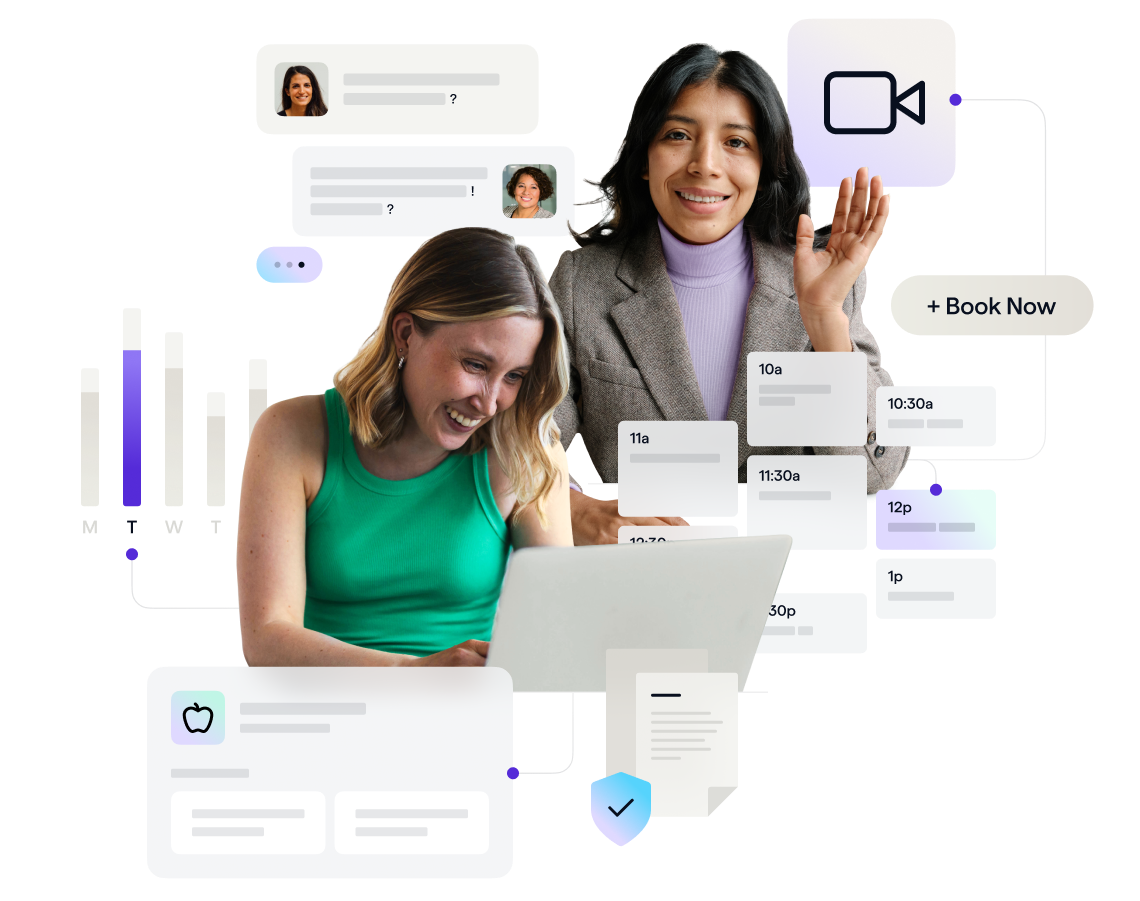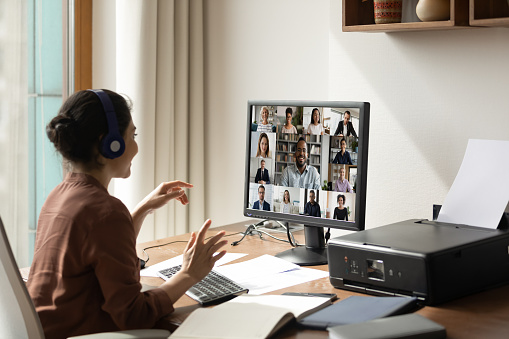

Choosing the best HIPAA-compliant software for private practice
Setting up your private practice? Learn what makes software HIPAA-compliant, explore top tools clinicians use, and discover why all-in-one platforms are ideal for private practice clinicians.
Starting a private practice comes with a lot of important decisions—and one of the biggest is how you’ll keep your clients’ information safe. These days, it’s not just about locking up paper files. Most records are now stored and shared digitally, which means you need HIPAA-compliant software designed to protect sensitive personal health information.
The good news? You don’t need to be a tech expert to make smart, secure choices. In this article, we’ll break down what HIPAA-compliance really means, highlight popular tools that private practice clinicians rely on, and help you find private practice software that works for you.
What makes a software HIPAA-compliant?
To be considered HIPAA-compliant software, a database or system must follow strict privacy and security standards outlined in the Health Insurance Portability and Accountability Act (HIPAA). These standards are designed to keep client data safe, confidential, and accessible only to the right people.
So, what does that actually look like in a software system? Here are a few key features to look for when evaluating software for your private practice:
- Data Encryption: All client information should be encrypted—both when it’s stored and when it’s being shared or transferred. Encryption makes it nearly impossible for unauthorized users to read the data, even if they manage to access it.
- Access Controls: Only authorized people should be able to view or edit sensitive information. Look for software that offers role-based access, password protections, and multi-factor authentication to ensure the right people have the right level of access.
- Audit Logging: A good HIPAA-compliant system keeps a detailed log of who accessed what, and when. These logs help monitor activity and quickly identify any suspicious or unauthorized behavior.
- Secure Data Transmission: Anytime data is sent between users or systems, it should travel through secure, encrypted channels—typically using TLS (Transport Layer Security) or SSL (Secure Sockets Layer).
- Backups and Disaster Recovery: Life happens—systems crash, power goes out, files get corrupted. A reliable HIPAA-compliant database will include regular backups and a plan to recover data quickly in case of emergencies.
Software solutions for your private practice should be able to provide third-party certifications like HIPAA compliance and SOC-2 Certification. These credentials help you ensure the software follows recognized standards for data security and privacy. At the end of the day, strong security should be a top priority—not just for your peace of mind, but for the trust and safety of your clients.
What HIPAA-compliant software is used by private practices?
Private practice clinicians often rely on a combination of tools to run their businesses—such as file storage, email platforms, video conferencing software, and more. This once meant piecing together different platforms and making sure each tool individually was HIPAA-compliant. However, there are now all-in-one solutions that bring everything together in one secure place. Let’s walk through some of the key tools private practices use—and how all-in-one platforms like Healthie simplify it all:
- EHRs (Electronic Health Records): At the heart of your practice is your EHR—the system you use to document sessions, track progress, manage forms, and store sensitive health information. A HIPAA-compliant EHR ensures everything is encrypted and protected.
- Email: Secure client communication is essential. Personal email accounts in Gmail or AppleMail do not provide the security needed to share protected health information (PHI). Instead, there are encrypted email services available which can provide a Business Associate Agreement (BAA) to guarantee HIPAA-compliance.
- Chat: The convenience of texting is difficult for clinicians and clients to resist, however it is not secure. HIPAA-compliant chat tools allow you to send messages to clients without worrying about privacy breaches.
- Zoom for Healthcare: Telehealth has become an essential part of providing care. However the video conferencing solutions we use in our personal lives are not secure enough to use for telemedicine. You must seek out a HIPAA-compliant solution, such as Zoom for Healthcare, that guarantees security for telehealth sessions.
- eFax: If you will be sending or receiving client files to external clinics or hospitals, you might find that many of these institutions are still using fax to transmit PHI. Luckily, there are eFax options that provide modern, secure solutions to the traditional fax machine.
These are just a few examples of the most common tools used in private practice that may pose security risks if not properly protected. But they're not the only ones—anything you use to store, send, or access client information should be evaluated for HIPAA-compliance. Starting with these essentials can help you build a strong foundation for protecting your practice and your clients.
{{free-trial-signup}}
Healthie is a HIPAA-compliant EHR and platform for private practices
If finding, evaluating, and managing multiple tools sounds overwhelming, you're not alone. That’s exactly why platforms like Healthie were created—to give private practice clinicians a simpler, more secure way to run their businesses. Healthie is a HIPAA-compliant software solution designed specifically for private practice clinicians, and it includes everything you need in one place.
With Healthie, you get a private practice EHR that’s built for charting, scheduling, billing, and storing client records—all with end-to-end encryption and secure access controls. But what really sets Healthie apart is that it also includes the essential tools clinicians use every day:
- HIPAA-compliant email for secure client communication
- Built-in chat for safe, instant messaging
- Telehealth capabilities, including Zoom for Healthcare integration
- Secure eFaxing for sending and receiving documents
- Online forms, payment processing, and client portal access
Because it’s an all-in-one platform, Healthie helps you streamline your workflow and reduce the number of tools you need to manage. That means less time worrying about security settings—and more time focused on client care.
Whether you're just setting up your private practice or looking to simplify your current setup, Healthie offers a trusted, comprehensive solution that scales with your needs.





